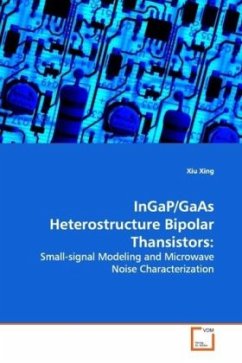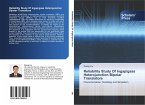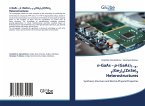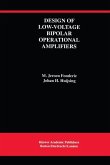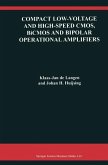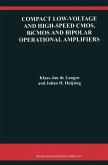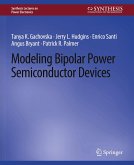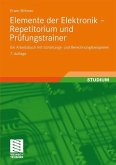Small-signal modeling and microwave noise
characterization of
InGaP/GaAs HBTs will be explored. Device physics,
analytical
extraction and numerical optimization are
incorporated to extract
small-signal equivalent circuit parameters (ECPs),
improved by
modeling interaction between contact metalizations
and hybrid
optimization of T and Pi circuit topologies.
Excellent agreement
between measured and modeled S-parameters, with limited
deviation of optimized ECPs from their initial
values, is obtained up
to 40 GHz for a wide range of bias. Combined with NF50
measurement, frequency- and bias-dependent noise
parameters
(NPs) up to 20 GHz are extracted using polynomial
approximation of
noise parameters for intrinsic device. Facilitated by
the correction of
source mismatch in measurement, great agreement between
measured and modeled NF50, as well as acceptably
deviated
optimized fitting factors, results in a minimum NFmin
of 1.64 dB at
10 GHz for an InGaP/GaAs HBT with two 2.3 by 5.6 um2
emitters.
Study of geometry-dependent performance shows promise
of high-
speed and low noise InGaP/GaAs HBTs using narrow,
long, and at
least two-sided base contacts.
characterization of
InGaP/GaAs HBTs will be explored. Device physics,
analytical
extraction and numerical optimization are
incorporated to extract
small-signal equivalent circuit parameters (ECPs),
improved by
modeling interaction between contact metalizations
and hybrid
optimization of T and Pi circuit topologies.
Excellent agreement
between measured and modeled S-parameters, with limited
deviation of optimized ECPs from their initial
values, is obtained up
to 40 GHz for a wide range of bias. Combined with NF50
measurement, frequency- and bias-dependent noise
parameters
(NPs) up to 20 GHz are extracted using polynomial
approximation of
noise parameters for intrinsic device. Facilitated by
the correction of
source mismatch in measurement, great agreement between
measured and modeled NF50, as well as acceptably
deviated
optimized fitting factors, results in a minimum NFmin
of 1.64 dB at
10 GHz for an InGaP/GaAs HBT with two 2.3 by 5.6 um2
emitters.
Study of geometry-dependent performance shows promise
of high-
speed and low noise InGaP/GaAs HBTs using narrow,
long, and at
least two-sided base contacts.

